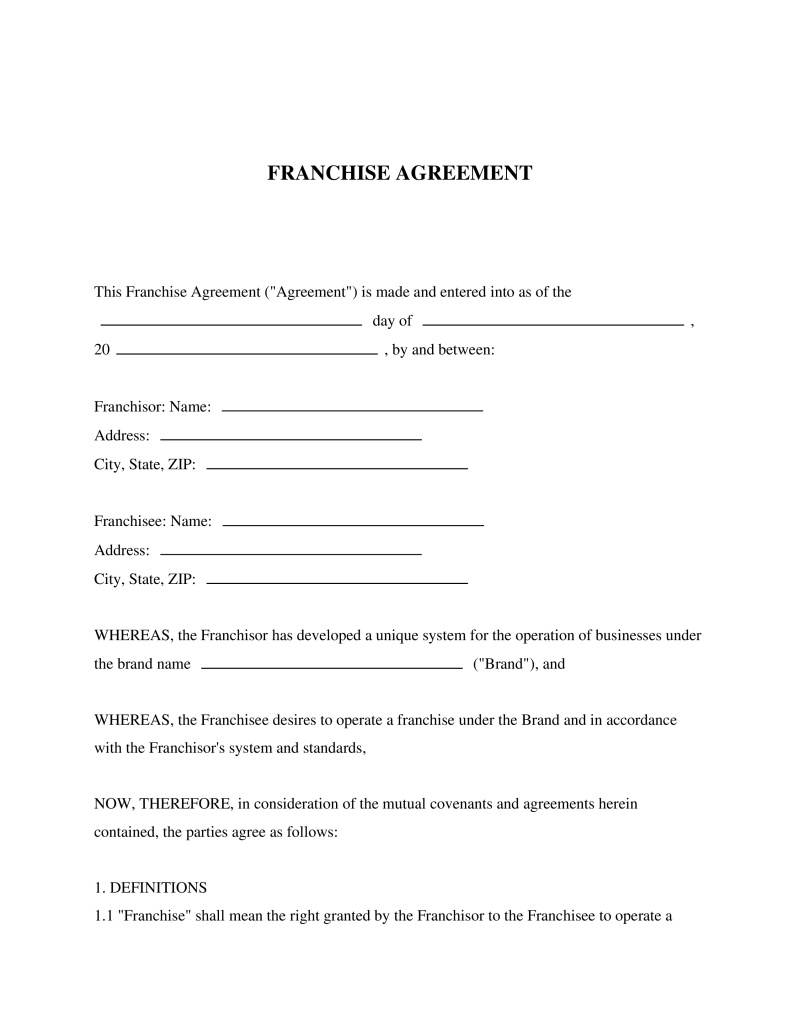What is a Franchise Agreement?
A Franchise Agreement is a binding legal document that delineates the relationship between the franchisor and the franchisee. This contractual document serves to establish a franchisor's brand, system, and business model to a franchisee, detailing the expectations and responsibilities of both parties. If you're interested to know "how do franchises work?", this agreement is the touchstone because it provides all the necessary information.
Key features of a Franchise Agreement include:
- The terms and conditions for the franchise,
- The rights and responsibilities of both franchisor and franchisee,
- The duration of the franchise,
- Rules regarding termination, renewal, and transfer of franchise,
- Training, support and operational standards provided by the franchisor,
- Payment details – including initial investment, ongoing fees, royalties, and advertising fees.
Scenarios That Call for a Franchise Agreement
A Franchise Agreement is quintessential in scenarios where an individual or entity wants to open a franchise of an established brand. Whether you're a fast-food chain owner looking to expand your reach or an entrepreneur interested in buying into an established business model, a franchise agreement contract is your starting point. It outlines the terms of your business relationship and helps to protect both parties' interests.
Common Parties Involved
The primary parties involved in a Franchise Agreement are the franchisor, the owner of the brand and business model, and the franchisee, who is often referred to as "the purchaser of a franchise". The franchisee is granted the right to operate a business using the franchisor's name, trademarks, and business model.
How a Franchise Agreement Safeguards You
A Franchise Agreement offers legal protection to both parties involved. For the franchisor, it safeguards the brand's reputation by ensuring that the franchisee maintains the quality and standard of service. For the franchisee, it provides transparency about the franchise system, support provided, and financial commitments, reducing the risk of misunderstandings and disputes.
Examples of Franchise Agreements
- A coffee shop chain owner allows an entrepreneur to open a new outlet in another city. They sign a franchise agreement that sets out the terms of operation, including menu pricing and shop décor.
- A popular gym brand sells a franchise to a businessperson looking to open a fitness center in their town. The Franchise Agreement details the training for staff, the gym layout, and the payment structure.
FAQs
About this document
A Franchise Agreement is a legal contract granting rights to operate a franchise, detailing terms, fees, and obligations for both parties.
This document utilizes our advanced PassTheBar AI technology, ensuring bar-exam precision and comprehensive legal coverage.
This document is designed to comply with the laws of all 50 states.
Community Discussion
Share your experience and help others
Legal Notice: Comments are personal opinions and do not constitute legal advice. Always consult a qualified attorney for matters specific to your situation.

Comments (0)
Leave a Comment
No comments yet. Be the first to comment!